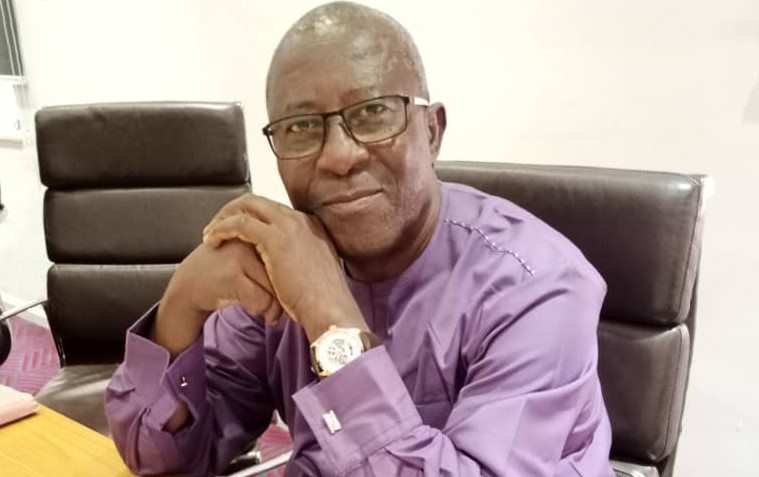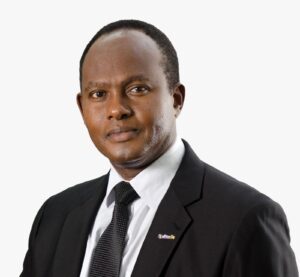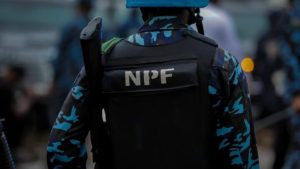Nigeria’s fragile democracy: Five critical threats to political stability

Ivor Takor
By Ivo Takor, mni Esq.
Nigeria, often hailed as the “Giant of Africa,” continues to grapple with deep-rooted political instability despite over two decades of uninterrupted democratic governance.
Behind the façade of elections and civilian rule lie institutional weaknesses and dangerous political habits that threaten the nation’s cohesion and democratic progress.
This piece examines five major fault lines undermining Nigeria’s political stability.
Electoral Manipulation: Undermine Democratic Legitimacy
Since Nigeria’s return to civilian rule in 1999, the promise of democracy has remained largely unfulfilled for many citizens. Central to this disillusionment is the persistent manipulation of the electoral process, one of the most dangerous threats to the country’s political stability.
Election fraud in Nigeria takes many forms—ballot box snatching, vote buying, falsified results, voter intimidation, and the brazen abuse of state institutions. These practices erode public trust in elections, which are meant to reflect the will of people.
When elections are neither free nor fair, they produce leaders who lack genuine mandate. Such leaders, aware of their fragile legitimacy, often resort to authoritarian tactics, stifling dissent, weakening the rule of law, and neglecting inclusive governance.
The damage extends beyond politics. Electoral fraud deepens societal divisions in a multi-ethnic and religiously diverse nation like Nigeria. It fuels tension, incites violence, and in extreme cases, triggers unrest among communities that feel excluded.
Worse still, the youth—who should be the vanguard of democratic engagement—are increasingly alienated by a system they perceive as rigged and corrupt.
Institutions like the Independent National Electoral Commission (INEC) and security agencies, must be beyond reproach. Yet, when these bodies are seen as partisan or complicit the damage to national cohesion is profound. The lack of accountability for electoral offenses only reinforces a dangerous culture of impunity.
To restore faith in democracy a, Nigeria must undertake comprehensive electoral reforms, ensuring the independence of electoral bodies, leverage on technology for transparency, and imposing strict penalties for violations.
Most crucially, there must be political will to prioritize democratic principles over partisan interests.
The survival of Nigeria’s democracy hinges on credible elections. Without them, the country will continue to suffer from weak leadership, public distrust, and chronic instability.
Lack of Accountability to the Electorate
A persistent issue in Nigeria’s democracy is the glaring lack of accountability among elected officials—across the executive and legislative branches at all levels of governments.
Politicians frequently neglect their constituents after elections, prioritizing personal gain over public service. Engagement with the electorate becomes an afterthought-until the next campaign cycle.
The problem is worsened by ineffective legislative oversight. Nigeria’s National and State Assemblies, meant to serve as independent checks on the executive are increasingly seen as mere extensions of it.
Many legislators appear more focused on political survival and patronage than on holding the government accountable.
The 1999 Constitution (as amended) grants the National and State Assemblies investigatory powers Section 88, 89 and 129), yet these are often reduced to political theater. This negligence erodes public trust and weakens governance.
Corruption and Political Defections
Rampant corruption continues to cripple Nigeria’s political development. More troubling is the trend of indicted politicians defecting to the ruling party to invade justice—a practice often called “political prostitution .”
This undermines democratic accountability and makes a mockery of anti-corruption efforts. It reinforces the perception that corruption is tolerated – even rewarded – as long as one aligns with those in power.
The consequence? A weakened party system, a compromised judiciary, and decline public confidence in government institutions.
Conflicting Court Orders: Judicial Chaos
Another major threat stems from the judiciary, where courts of equal jurisdiction increasingly issue contradictory rulings – particularly in political cases.
These conflicting orders create confusion, erode judicial sanctity and embolden politicians to exploit the courts for selfish ends. In some cases, they trigger breakdowns of law and order within political parties, further destabilizing the electoral process.
Such inconsistency undermines the rule of law and fuels public cynicism about judicial impartiality.
Weaponizing Ethnicity and Religion to Evade Accountability
When confronted with poor governance or corruption allegations, many Nigerian politicians resort to ethnic and religious rhetoric. Instead of addressing accusations transparently, they portray themselves as victims of tribal and religious perception.
This cynical manipulation deepens divisions, distracts from real issues and forces citizens to choose loyalty over truth.
In a diverse nation like Nigeria, such tactics are not just irresponsible—they are dangerous. They fuel distrust, embolden extremism, and hinder the emergence of a unified national identity.
Conclusion: A Call for Systemic Reform
Nigeria’s path to lasting political stability requires confronting these systemic flaws: hold leaders accountable; punish corruption – regardless of political affiliation; restore judicial coherence and credibility, and replace divisive politics with issue-based governance.
Only by addressing these critical threats can Nigeria build a resilient democracy and truly fulfill its potential as Africa’s leading nation.
Ivo Takor, mni Esq is a public affairs analyst, a social justice advocate and Vice Chairman/Chairman Human Rights Committee of Nigerian Bar Association (NBA) Epe Branch.




